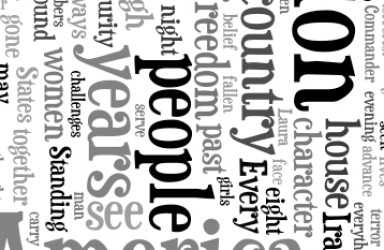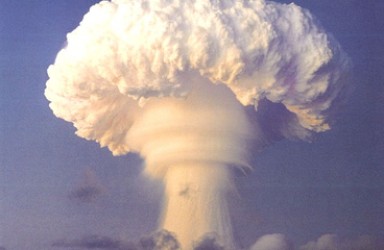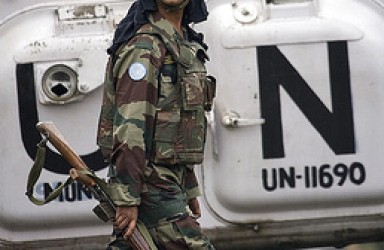Neoconservatism and American Foreign Policy
Neoconservatism’s approach of democratising the Middle East via military intervention, tempering terrorism in the area, and dealing with Iran decisively has already formed the core of Obama’s policy package, all continuations from the Bush administration.
Shell and Society: Securing the Niger Delta?
Transnational Oil Companies struggle to operate in the face of widespread anti-oil protests and civil conflict in the Niger Delta. Shell, in particular, has faced considerable security challenges since the emergence of an active civil society in the early 1990s – most notably manifested by MOSOP. The brutal repression of that group proved ultimately counterproductive and Shell now aims to build a security-development nexus in partnership with local people. However, the policy is based on a paradox.
Is the War on Terror Transforming Contemporary Politics?
The War on Terror has changed the world of international politics greatly. Old traditions and customs such as the respect for state sovereignty and the formal equality of states have been shaken. Humanitarian intervention and concerns for human security have been forced into the background, and the human rights and liberty of citizens of all nations are being threatened by the War on Terror.
In the Post-9/11 Era is “The Responsibility to Protect” Irrelevant?
The responsibility to protect individuals from violations of their human rights around the world has been a movement increasing in intensity since the end of the Cold War. Since 9/11, the responsibility to protect has perished, and its corpse is now being used as a disguise for self-interest and self-security
What are the Challenges to Nuclear Deterrence in the Second Nuclear Age?
This first introduces nuclear deterrence during the Cold War before considering nuclear proliferation and nuclear deterrence more broadly. It then examines state methods of responding to transnational terrorism, and finally explores further issues in contemporary international security challenging the centrality of deterrence in the Second Nuclear Age.
Liberal Peace Transitions: Towards a Post-Liberal Peace in IR?
It has become generally assumed that ‘Liberal Peace Transitions’ offer a way out of local, civil, regional and international conflict, as well as complex emergences and development problems. All military, humanitarian, diplomatic, political, economic, and social, interventions since the end of the Cold War have been geared to this programme – with limited success.
AMERICA’S COMMAND STRUCTURE
I think the geographically based commands should be eliminated with one exception, replaced in part by additional functional commands. As some may know, I stand against our willingness to manage global security as well as our own, a willingness allowed by our great military power relative to others and the encouraged free riding of nearly all our “allies”.
International Law and the Bush Doctrine
The Bush doctrine took shape throughout the aftermath of the 9/11 attacks, developing in various speeches by the President and high ranking staff. This essay considers how the doctrine complimented, or challenged international law.
The Rwandan Genocide: The Guilty Bystanders
Each time genocide occurs, the world cries out ‘never again’. So why does no one stop these atrocities once they begin? Why are they simply ignored until they “resolve” themselves? This essay will be seeking to answer why the humanitarian intervention failed to prevent the genocide in Rwanda. It will focus on three main possible reasons why the intervention failed.
Separate but (Un)Equal: Gender Segregated Bus Lines of Jerusalem
There is a tendency to equate the metaphor of travel and mobility with emancipation and the ability to move freely between cultures or continents. This work examines the implications of gender segregation in Ultra Orthodox communities of Jerusalem, by looking more closely at women’s experiences of the journeys made (both actual and allegorical) between the public and private spheres.










